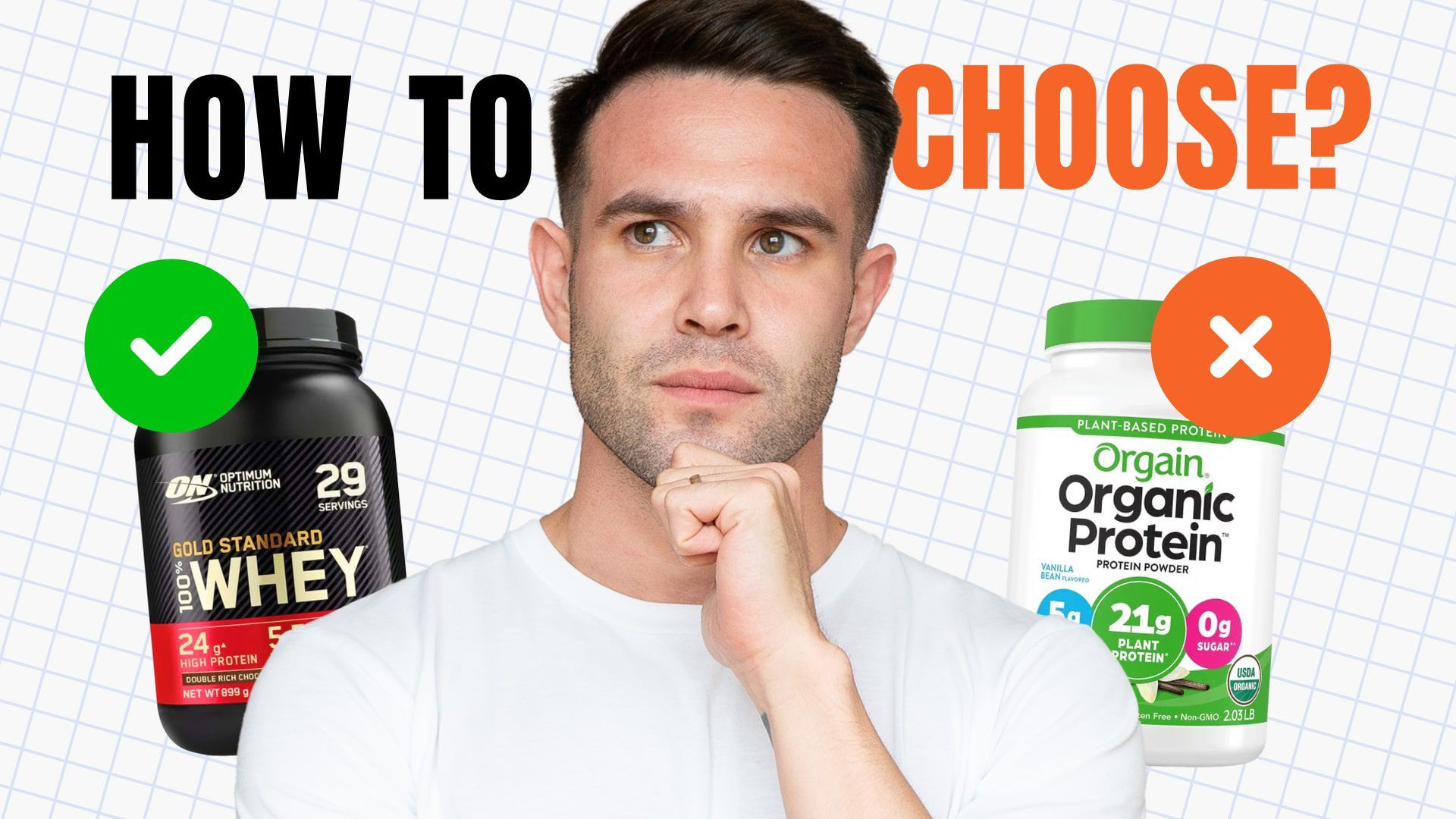Table of contents
In this article, you will learn
Protein supplements can be a convenient and effective way to meet your dietary protein needs. In this article, you’ll discover the different types of protein supplements, what to consider when choosing one, their benefits and potential risks, and practical tips for integrating them into your diet.
Benefits of Protein Supplements
Protein supplements offer several advantages, making them a popular choice for many people.
Convenience and Portability
- Ease of Use: Protein supplements are quick and easy to prepare, making them ideal for busy lifestyles.
- Portable Options: Many protein supplements come in convenient formats, such as ready-to-drink shakes or single-serve packets, perfect for on-the-go nutrition.
Targeted Nutrition
- Meeting Dietary Needs: Protein supplements can help you meet specific dietary needs, such as increasing protein intake for muscle building or recovery.
- Benefits for Health: They support muscle growth, recovery, weight management, and overall health.
Types of Protein Supplements
Understanding the different types of protein supplements can help you choose the one that best suits your needs.
Whey Protein
Whey protein is one of the most popular and widely used protein supplements.
Description: Whey protein is derived from milk and is a byproduct of cheese production. It is a complete protein containing all nine essential amino acids.
Benefits: Fast-digesting, supports muscle repair and growth, and is high in branched-chain amino acids (BCAAs).
Best Uses: Ideal for post-workout recovery and muscle building.
Who It’s Best For: Athletes, bodybuilders, and anyone looking to increase their protein intake quickly.
Casein Protein
Casein protein is another milk-derived protein, but it has different properties than whey.
Description: Casein is a slow-digesting protein that provides a steady release of amino acids.
Benefits: Sustained amino acid release, supports muscle repair over a longer period, can reduce muscle breakdown.
Best Uses: Ideal for nighttime use or between meals to keep you full and support muscle maintenance.
Who It’s Best For: Those looking to support muscle repair overnight or maintain muscle mass throughout the day.
Plant-Based Proteins
Plant-based protein supplements are derived from various plant sources and are suitable for those with dietary restrictions.
Types: Pea, soy, hemp, rice, and other plant-based proteins.
Description: These proteins are often combined to ensure a complete amino acid profile.
Benefits: Suitable for vegans and vegetarians, hypoallergenic options available, environmentally friendly.
Best Uses: General protein supplementation, suitable for all times of the day.
Who They Are Best For: Vegetarians, vegans, and individuals with dairy allergies or intolerances.
Collagen Protein
Collagen protein is derived from animal connective tissues and has unique benefits.
Description: Collagen protein supports skin, joint, and bone health but is not a complete protein.
Benefits: Improves skin elasticity, supports joint health, and promotes bone strength.
Best Uses: Supplementing for joint, skin, and bone health.
Who It’s Best For: Those looking to improve skin health, support joint function, and strengthen bones.
Blended Proteins
Blended protein supplements combine different types of protein to provide varied absorption rates.
Description: Blends may include whey, casein, and plant proteins to offer a balanced release of amino acids.
Benefits: Provides both fast and slow-digesting proteins, versatile for various uses.
Best Uses: Anytime use, suitable for pre and post-workout and between meals.
Who They Are Best For: Individuals seeking a versatile protein supplement that balances fast and slow digestion.
Factors to Consider When Choosing a Protein Supplement
When selecting a protein supplement, consider the following factors to ensure you choose the right one for your needs.
Dietary Preferences and Restrictions
- Vegetarians and Vegans: Opt for plant-based proteins that provide a complete amino acid profile.
- Allergies and Intolerances: Choose hypoallergenic options for dairy or soy allergies.
Protein Quality and Amino Acid Profile
- Complete Proteins: Ensure the protein supplement contains all nine essential amino acids.
- Evaluating Quality: Look for supplements that provide a high biological value (BV) and are easily digestible.
Ingredients and Additives
- What to Look For: Minimal additives, natural sweeteners, and high protein content per serving.
- What to Avoid: Excessive sugar, artificial flavors, and unnecessary fillers.
Taste and Digestibility
- Taste Preferences: Choose flavors you enjoy to make regular consumption easier.
- Digestibility: Opt for protein supplements that are gentle on your stomach and do not cause digestive issues.
Cost and Availability
- Balancing Cost and Quality: Find a supplement that offers good quality at a reasonable price.
- Availability: Choose a supplement that is easily accessible in your area or online.
Potential Risks and Considerations
While protein supplements can be beneficial, it’s important to be aware of potential risks and considerations.
Overconsumption and Health Risks
Too Much Protein: Excessive protein intake can strain the kidneys and lead to nutrient imbalances.
Side Effects: Certain protein supplements may cause digestive issues, such as bloating or constipation, in some people.
Quality and Safety
Choosing Reputable Brands: Opt for high-quality, reputable brands undergoing third-party safety and efficacy testing.
Verifying Safety: Look for certifications and read reviews to ensure the supplement is safe and effective.
Practical Tips for Using Protein Supplements
Incorporating protein supplements into your diet can be easy with these practical tips.
Integrating Supplements into Your Diet
- Meal and Snack Ideas: Add protein powder to smoothies, mix with yogurt, or blend into oatmeal.
- Recipes: Use protein powder in baking, such as protein pancakes or protein bars.
Timing and Dosage
- Optimal Times: Consume protein supplements around workouts for muscle building and recovery or between meals to curb hunger.
- Recommended Dosage: Follow the manufacturer’s instructions or consult a healthcare provider to determine the appropriate dosage based on your activity level and goals.
Key Takeaways
- Protein supplements can be a convenient and effective way to meet your dietary protein needs.
- Different types of protein supplements offer unique benefits; choose one that aligns with your dietary preferences and fitness goals.
- When selecting a protein supplement, consider factors such as protein quality, ingredients, taste, digestibility, cost, and availability.
- Be mindful of potential risks and ensure you choose high-quality, reputable brands.
- Incorporate protein supplements into your diet with practical tips and optimal timing for the best results.
If you have any questions or want to learn more, visit my blog and follow me on social media for helpful guides and health and wellness tools.
Works Cited and Relevant Links
- Harvard T.H. Chan School of Public Health. Protein: The Building Blocks of Life. Retrieved from https://www.hsph.harvard.edu/nutritionsource/what-should-you-eat/protein/
- National Institutes of Health (NIH). Protein Supplements: Benefits and Risks. Retrieved from https://www.ncbi.nlm.nih.gov/pmc/articles/PMC3262610/
- Mayo Clinic. Protein Powders: What to Know Before You Buy. Retrieved from https://www.mayoclinic.org/healthy-lifestyle/nutrition-and-healthy-eating/expert-answers/protein-powders/faq-20058305
- Journal of the International Society of Sports Nutrition. Evaluation of Protein Quality. Retrieved from https://jissn.biomedcentral.com/articles/10.1186/s12970-018-0215-1
- American Journal of Clinical Nutrition. Dietary Protein and Supplementation: Health Impacts and Recommendations. Retrieved from https://academic.oup.com/ajcn/article/105/1/8/4564526
- PubMed. Protein Supplements in Sports and Exercise: Current Evidence and Recommendations. Retrieved from https://pubmed.ncbi.nlm.nih.gov/27666529/
- Journal of the American Dietetic Association. Consumer Guide to Protein Supplements. Retrieved from https://jandonline.org/article/S0002-8223(07)01416-2/fulltext
This is a personal blog. I am not a doctor, fitness coach, nutritionist, or trained health professional. The information I share is based on my personal experience, self-research, and insights from working with health and wellness professionals. My content is for informational and entertainment purposes only and is not intended as health advice.
Always consult with your healthcare provider before making any significant changes to your health routines or treatments. I am not liable for any actions taken based on this information.
With that said, your well-being is my top priority. Stay healthy and take care!
Credits and Team

















Leave a Reply